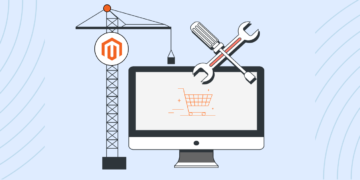Technology is reshaping the modern workplace, revolutionizing how we communicate, collaborate and perform daily tasks.
As organizations strive to stay competitive, understanding the impact of technology on the workplace experience is key to driving long-term success.
Transforming team collaboration
Whether teams are remote, hybrid or in-office, digital tools have transformed team collaboration, enabling seamless workflows and boosting productivity.
These platforms foster a collaborative culture that’s essential for innovation and growth.
Instant messaging and video conferencing have become foundational to workplace communication.
Real-time interactions make it easier to share ideas, provide feedback and resolve issues quickly.
Tools like screen sharing and interactive whiteboards further enhance collaboration, keeping teams aligned and engaged.
Establishing clear communication pathways reduces misunderstandings and improves efficiency.
Advanced solutions ensure messages are delivered promptly and accurately, helping teams stay focused and productive.
Streamlining workflow and boosting productivity
Process automation is a game-changer for workplace efficiency. By eliminating repetitive tasks, automation saves valuable time and money, allowing employees to focus on strategic initiatives and customer service.
Project management tools support real-time collaboration and progress tracking. Features like task assignments, deadline reminders and visual dashboards help teams stay organized and meet goals on time and within budget.
Cloud-based solutions provide secure, anytime access to documents and applications, enabling flexible collaboration across locations. With centralized data storage, employees can make informed decisions quickly, improving responsiveness and agility.
Supporting employee well-being and engagement
Employee well-being is a cornerstone of a positive workplace experience. When employees feel supported, they’re more engaged and productive. Yet, 82% of workers report some level of burnout due to long hours, heavy workload and work-life balance challenges.
Technology can help alleviate these pressures. Automation reduces manual tasks, while cloud-based collaboration tools enable flexible work arrangements.
Shared calendars and project management apps allow teams to stay connected while respecting individual schedules, promoting balance and reducing stress.
Feedback platforms, such as surveys, foster open communication between employees and leadership. These tools build transparency and trust, leading to a more engaged and satisfied workforce.
Empowering learning and development
Personalized learning opportunities are vital in today’s fast-paced work environment. E-learning platforms allow employees to upskill at their own pace, offering courses tailored to their roles and career goals.
Digital tracking tools provide insights into individual progress, strengths and areas for improvement.
With analytics and reporting features, managers can identify skill gaps and deliver targeted training.
Investing in employee development not only enhances the workplace experience but also drives business performance.
Leveraging data for informed decisions
Data analytics play a critical role in shaping workplace strategies. By analyzing patterns and trends, organizations gain insights into employee behavior, customer preferences and operational bottlenecks.
Reporting and tracking tools help identify areas for improvement and support scalable growth.
For instance, insurance companies can use analytics to streamline claims processing for better customer service and compliance standards, while healthcare providers rely on patient information management systems to accelerate approvals and improve patient care.
With the right data tools, businesses can create more efficient, responsive and engaging workplace experiences.
The future of workplace technology
The future of work is being defined by artificial intelligence (AI), generative AI and machine learning. These technologies automate routine tasks, deliver personalized experiences and provide insights that drive better decision-making.
As hybrid work models become the norm, organizations are investing in smart office solutions that support seamless collaboration across distributed teams. Tools like smart lockers offer secure, contactless ways to manage IT supplies, mail, and packages.
Emerging technologies such as augmented reality (AR) and virtual reality (VR) are poised to enhance training, onboarding and remote collaboration, creating immersive and interactive experiences.
Meanwhile, sustainability-focused innovations — like energy-efficient devices and digital document management — are helping companies meet environmental goals while improving operational efficiency.
Advanced analytics will continue to guide resource allocation and workplace design, ensuring environments are flexible, inclusive and employee-centric.
The future of workplace technology is about creating more adaptive spaces that empower people and drive business success.
Great workplaces don’t happen by accident — they’re designed with the right tools.














